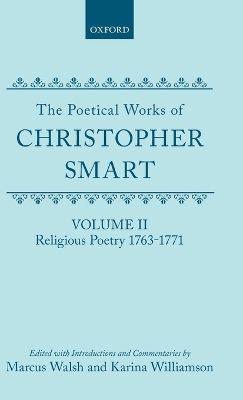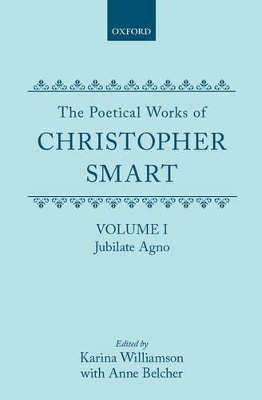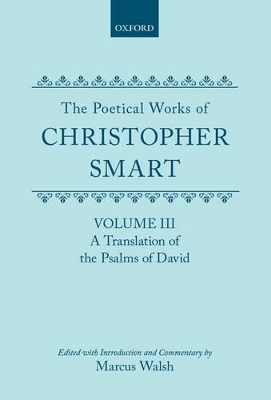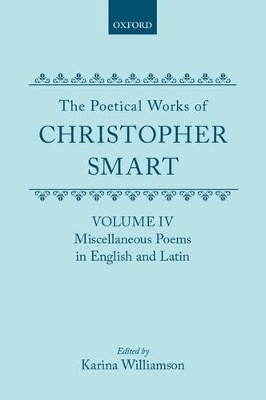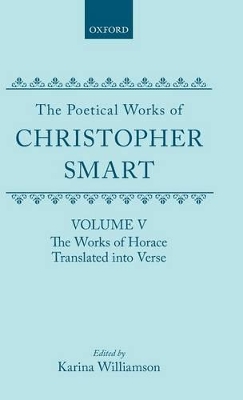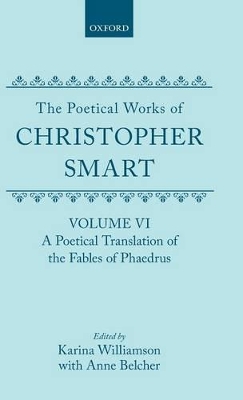Oxford English Texts
6 total works
The Poetical Works of Christopher Smart: Volume II. Religious Poetry, 1763-1771
by Christopher Smart
A scholarly edition of poetical works by Christopher Smart. The edition presents an authoritative text, together with an introduction, commentary notes, and scholarly apparatus.
The Poetical Works of Christopher Smart: Volume I. Jubilate Agno
by Christopher Smart
A scholarly edition of poetical works by Christopher Smart. The edition presents an authoritative text, together with an introduction, commentary notes, and scholarly apparatus.
The Poetical Works of Christopher Smart: Volume III. A Translation of the Psalms of David
by Christopher Smart
The Poetical Works of Christopher Smart: Volume IV. Miscellaneous Poems, English and Latin
by Christopher Smart
The translation now emerges as testimony to Smart's tireless creativity and poetic energy, and as a significant contribution to the present reappraisal of Horace's influence on English literature. Smart's contemporaries, however, either ignored the project, or treated it with contempt, and it was never reprinted. This edition includes Smart's own critical preface, which is important for its declaration of the writer's principles as translator, and for its unorthodox ideas about poetic language. Karina Williamson's informative introduction discusses Smart's principles and methods in the context of eighteenth century attitudes to the translation of clasical works. Full scholarly apparatus is provided, together with a detailed and clarifying commentary which explains Smart's more obscure passages.
Many of the best known Aesopian fables are in fact the work of the Roman poet Phaedrus, a freed slave of the first century. In the eighteenth century, Phaedrus was in the pantheon of great classical authors, while Christopher Smart was considered the outstanding fabulist of his time. Yet today, while Aesop's fables are a household name, and other works by Smart enjoy critical acclaim, Phaedrus' fables and Smart's translation of them are both largely disregarded or unknown. The fables themselves are familiar yet fresh; their social and political implications often have a startlingly contemporary flavour, and Smart's versions successfully catch the spirit and humour of the Latin originals. This edition provides a full introduction, commentary, and scholarly apparatus, and constitutes a history of the reception of the text. Also presented is the case for a possible new attribution to Smart - the Phaedrus by a Gentleman of the University of Cambridge.
